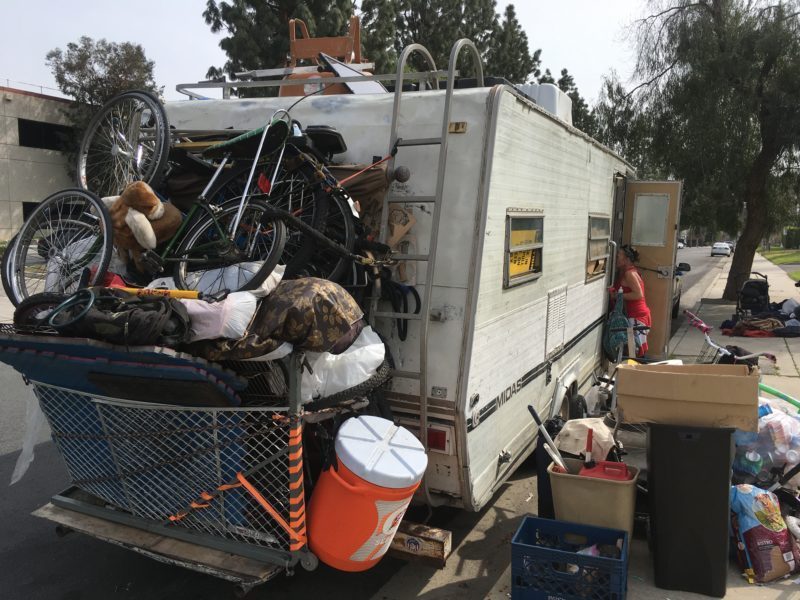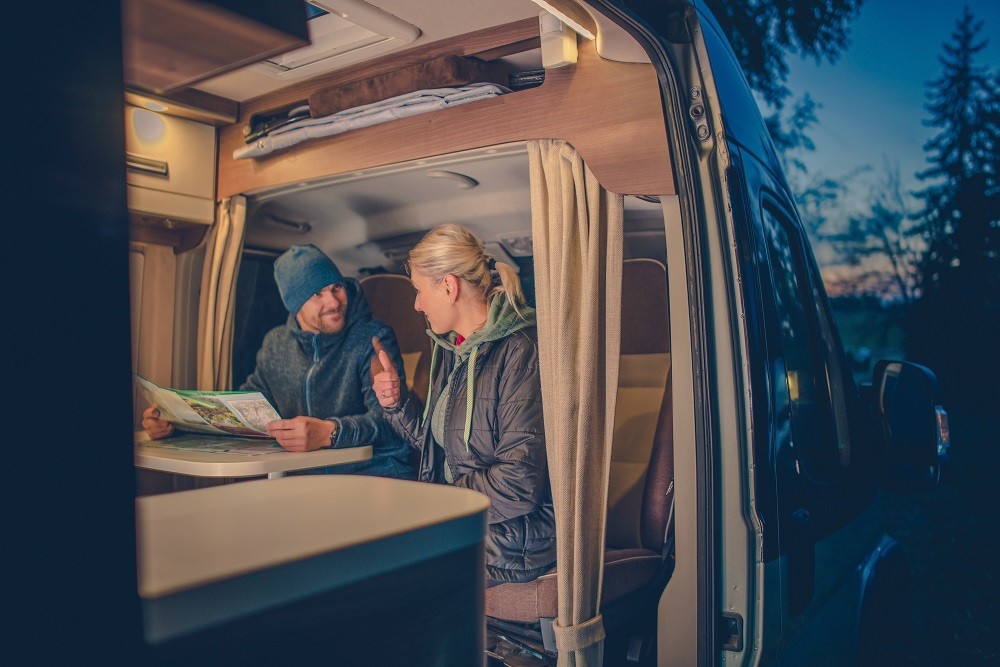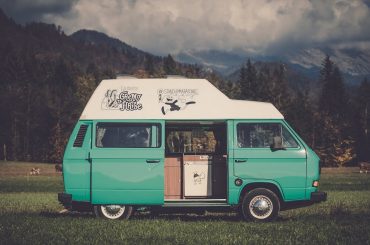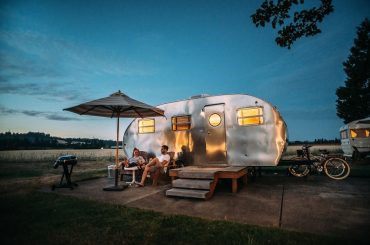Finally uprooting your life and into an RV is no small task. Planning to move into an RV motorhome, camper van or travel trailer is not something you can put off for later or place on the side to revisit, as preparation for such a huge change can take far longer than you expect. Sure, the nomadic life is one of freedom — free of the typical world’s burden of rent, bills and mortgages — but it would serve you to remember that you are essentially taking your life and living it out on the road where typical safety and comfort won’t be afforded to you. In order to live a life without any strings attached, you must be prepared for anything.
Living in an RV is more old fashioned compared to the tiny house craze that has recently swept the nation. Yet if you are more for mobility and constant traveling, then this is a good option for minimalists who want flexibility and spontaneity, but travelling 24/7 will no doubt present you with challenges, and you want to be prepared before packing up your life in the small confines of an RV.
Determine Your Purpose For Full Time RV Living
You have to identify what reason you are becoming a full time RVer for, so you don’t lose sight of your goal.
- Is it to be free and find yourself out on the open road?
- Is it because you’ve quit your job and are looking for a change in pace?
You have to make sure that you are sure in your purpose for living full time in an RV, and are sure that you do want to do this, or else you might find yourself quitting after being faced with one small instance of difficulty. You don’t want to have wasted time being miserable if this is not what you want.
- Are you traveling by yourself?
- With family?
- With pets?
You have to remember that when taking family with you, or a pet, that you have to factor in their needs and wants and most importantly safety along with yours, whether that be travel destinations or how you’ll make RV life comfortable for them and you.
Decide on the Type of RV You Plan to Live Full Time In
This vehicle is going to be your home on the move. You should settle on if you want a larger Class A motor home, or a smaller camper van. Maybe even a travel trailer or fifth wheel trailer?
Whichever model of RV you purchase, make sure you know its in and outs well. It may serve you well to get to know your vehicle or learn more about fixing them, and learn about how an RV’s plumbing works. You have handy and hands-on and know how to take care of your vehicle because you can’t depend on road side assistance or car shop employees who can trick you for faults that aren’t there and charge you extra. Before you go on this expedition, make sure that your RV can run for a long time, and that you are educated enough in keeping it running. Always have tools with you.
Spend Time Researching Full Time RVing
Life on the road and traveling constantly is exciting, but where are you going? Before you place your keys in the ignition, make sure you plan out the states you want to visit, their landmarks, their parks and beaches that you want to go see. Draw a path on the map of which states you’ll visit in order, and before you get there, make sure you do research on where you are allowed to park your vehicle for a good amount of time, since you’re going to be exploring on foot, too.
Some RV parks and campgrounds need to be booked months beforehand. This is good to know so you don’t get stuck driving indefinitely for a place to stay the night. Lastly, your itinerary is not just for you; it’s for your family, too. It’s so they can keep tabs on you and know where you are at certain times, so no matter what happens, they’ll know if your safe or if something’s gone wrong.
Focus on Minimalism as a Full Time RVer
This is the part where you identify which items belong in your RV, since you can’t bring all of your belongings with you. You have to prioritize the essentials and let go of the things you know in the back of your head that you won’t use. Besides, you can use all that freed up space for first aid kits, tools and any medicine you may need out on the road. The longer you are out on the road, the longer you’ll learn what you do and don’t need.
Depending on your build, you can have so much more storage if you’re creative enough. You can end up installing a couch that pulls up into a bed, or have a small space underneath for clothes storage. You can reserve the shelf spaces above your kitchen area by putting dry or dried food into mason jars. Capitalize on every unused inch inside your RV, and you’ll find there’s actually more space than you initially thought you did.
Read our article, Huge List of RV Storage Ideas, for many great ideas on how to maximize the amount of storage space your RV has.
What you don’t want to do is have so much stuff you become more of a mobile hoarder than a full time RVer.

Purchase the Essentials
Along with identifying the essentials, you should make a checklist of the most important things you want to be secured, such as your generator, your lights, water supply, locks, windows, etc. You need to ensure that your RV can give you the bare essential comforts of living, along with safety. You never want to be caught unprepared in the event of a storm, an accident, a vehicle complication and other dangerous situations.
If you’re planning to move into a camper van, you should read our list of Van Living Essentials. Many of these items are also applicable to larger RV motorhomes and camper trailers, too.
You should always have a prepared bug out or first aid bag with everything you need to help you last in any eventuality. You can read our article on how to make a great first aid bag for full time RV living. If you’re traveling with others, make sure they understand the importance of staying safe, especially if you plan to travel with children. For any scenario you think you might face depending on where you currently are, discuss a game plan with your companions.
You should also have extra money for unpredictable situations. This needs to be a fund for emergencies only, not to be used frivolously for the travel. Along with this, make sure you’ve got a couple of spare tires and enough gas to keep you running no matter the circumstance and equipment to defend yourself with. Remember that you are essentially protecting your whole life inside that RV. Assured safety and a plan of action gives you room to have stress-less fun.




